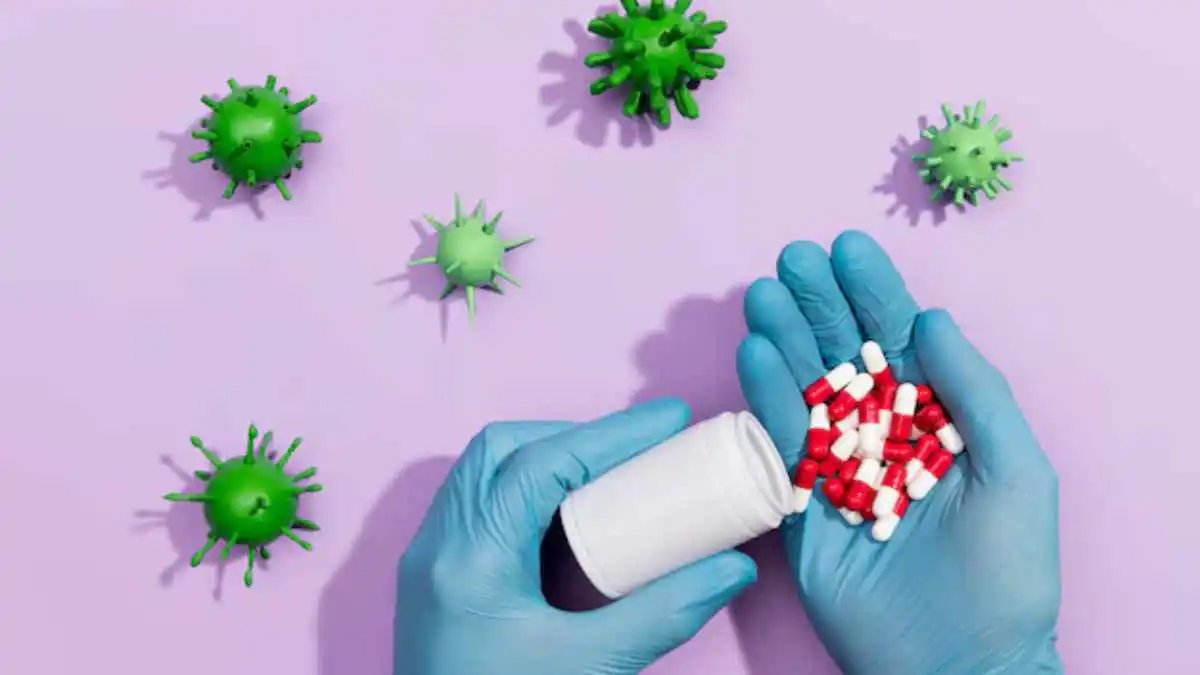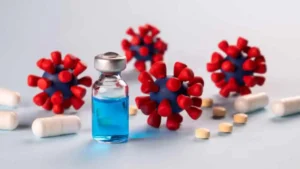HEALTH AND FITNESS
ADN-237: Promising New Antiviral Compound for Viral Infections

ADN-237 is a novel molecular entity of therapeutic efficacy that has an antiviral activity demonstrated to some extent at the present stage. As a more flexible approach to target treatment, ADN-237 was designed in response to unmet medical needs that have arisen due to increasing viral RNA-based resistance. Given the analysis of trends related to drug resistance of pathogens, ADN-237 is presented as a solution for controlling diseases that are no longer treatable with traditional antiviral and antibiotic drugs.
Chemical Structure and Composition of ADN-237
The chemical structure of ADN-237 is distinctive, enabling it to interact efficiently with RNA viruses. Unlike conventional antiviral compounds, ADN-237’s structure allows it to bind precisely with viral RNA, disrupting the replication process. Its structural integrity and specificity are critical to its success in navigating cellular environments without affecting healthy cells, making it both effective and safe in preliminary studies.
Mechanism of Action: How ADN-237 Works
ADN-237 works as an antiviral through intervention with some aspects of the RNA virus replication process to prevent replication within host cells. This interference halts the viruses and the extent of damage resulting from the same as and when they propagate. Furthermore, it provides a direct antiviral action but also acts on the biochemical parameters that enhance the cell readiness to confront pathological agents, providing a general enhancement of immune readiness. This two-fold action is especially rewarding during antiviral therapies when coupled with the modulating of the illness. Thus, the antiviral strategy appears broader than that of the conventional antiviral drugs, making ADN-237 stand out.

Advantages of ADN-237 in Antiviral Therapies
- Addresses Antibiotic Resistance: Offers an alternative to antibiotics, which are losing efficacy due to resistance.
- Dual Benefits: Combines antiviral action with immune system support.
- Compatibility: Shows high potential for compatibility with existing treatments.
ADN-237 in Immunology
Investigations showing how it works on the immune system are pointing to its promise in modulating immune responses adequately. It improves the activity of leukocytes and improves deep immune defense against viral diseases. This could make it a good candidate for the management of immune-related disorders for example autoimmune diseases or chronic infections. The main point of it is to help immune health at the cellular level, adding another dimension to immunotherapy that may help patients deal with Immune System Disorder or prevent it. Other further investigations should substantiate these effects so that ADN-237 could become a promising tool in the immunology area.
ADN-237’s Role in Oncology
In oncology, it is under investigation for its potential to inhibit tumor growth. Preliminary research suggests that it can target specific biochemical pathways involved in cancer cell replication, slowing or stopping tumor progression. This unique mechanism could make ADN-237 effective in combination therapies, working alongside existing cancer treatments to improve patient outcomes. Targeting both cancerous and viral cells may provide a dual benefit in patients who are immunocompromised or facing viral infections. If further studies validate these effects, it could become a significant asset in the fight against cancer.
Clinical Trials and Research Phases of ADN-237
Clinical trials are underway to determine ADN-237’s safety, efficacy, and optimal dosage. Early-phase trials focus on assessing its effects on cellular health and immune response, with promising initial results. Patients in these trials have shown improved resistance to viral infections and minimal side effects. As ADN-237 progresses through further testing, researchers will explore its effectiveness across a wider range of diseases and refine dosing guidelines. If the trials continue to yield positive results, it could advance to the final stages of clinical development, moving it closer to market availability.
ADN-237 and Antibiotic Resistance
- Alternative to Antibiotics: Reduces reliance on antibiotics, which are increasingly ineffective due to resistance.
- Supports Antiviral Strategies: Offers a targeted solution for RNA viruses without contributing to antibiotic resistance.
- Broad Potential: Can be used alongside antibiotics in complex infections to improve outcomes.
Comparison with Other Antiviral Compounds
It is unique among antiviral drugs because it works in two ways and is non-interference with cellular functions. It does not act like common antivirals that only combat viruses but instead strengthens the efficiency of individual cells, and the body’s immune system. However, its lower side effect profile and antiviral specificity it targets RNA viruses makes it better in some ways. Comparative studies are already equating ADN-237 to other antiviral agents, and initial evidence points to the drug being better in certain scenarios than some currently used treatments for conditions that involve recurrent or higher resistance or immunosuppression.
Manufacturing and Development Challenges
Producing it presents certain challenges due to its unique chemical structure and high precision requirements. Scaling production to meet clinical demand while maintaining quality is a primary challenge. Development costs are also significant, potentially impacting its pricing upon release. However, advances in pharmaceutical manufacturing are helping to address these issues, with ongoing efforts to streamline ADN-237’s production. Researchers and manufacturers are exploring cost-effective methods to make it accessible to a broader population without compromising its effectiveness.

Future Prospects and Developments
Its future is promising, with potential applications extending beyond viral infections to a wide range of health issues. Research is ongoing into expanding its use in areas like oncology and neurology, which could make it a multi-faceted treatment. As development continues, its adaptability and effectiveness could establish ADN-237 as a foundational treatment in modern medicine. The compound’s ability to support immune health while combating specific pathogens could revolutionize healthcare and enhance disease resistance on a global scale.
Conclusion
ADN-237 is an innovative pill with great potential as a part of the pharmaceutical treatments for viruses and as a multipotential drug in many medical areas. They include targeting RNA viruses, boosting cellular health and immunity putting it in a position of being a key solution to modern medical complications. Over time, this research will shed light on how ADN-237 might redefine immunology, oncology, and neurology in the patient management space and available treatment options for escalating disease resistance and enhancing human health in the future.
-

 BIOGRAPHY9 months ago
BIOGRAPHY9 months agoBehind the Scenes with Sandra Orlow: An Exclusive Interview
-

 HOME1 year ago
HOME1 year agoDiscovering Insights: A Deep Dive into the //vital-mag.net blog
-

 HOME1 year ago
HOME1 year agoSifangds in Action: Real-Life Applications and Success Stories
-

 BIOGRAPHY1 year ago
BIOGRAPHY1 year agoThe Woman Behind the Comedian: Meet Andrew Santino Wife




























